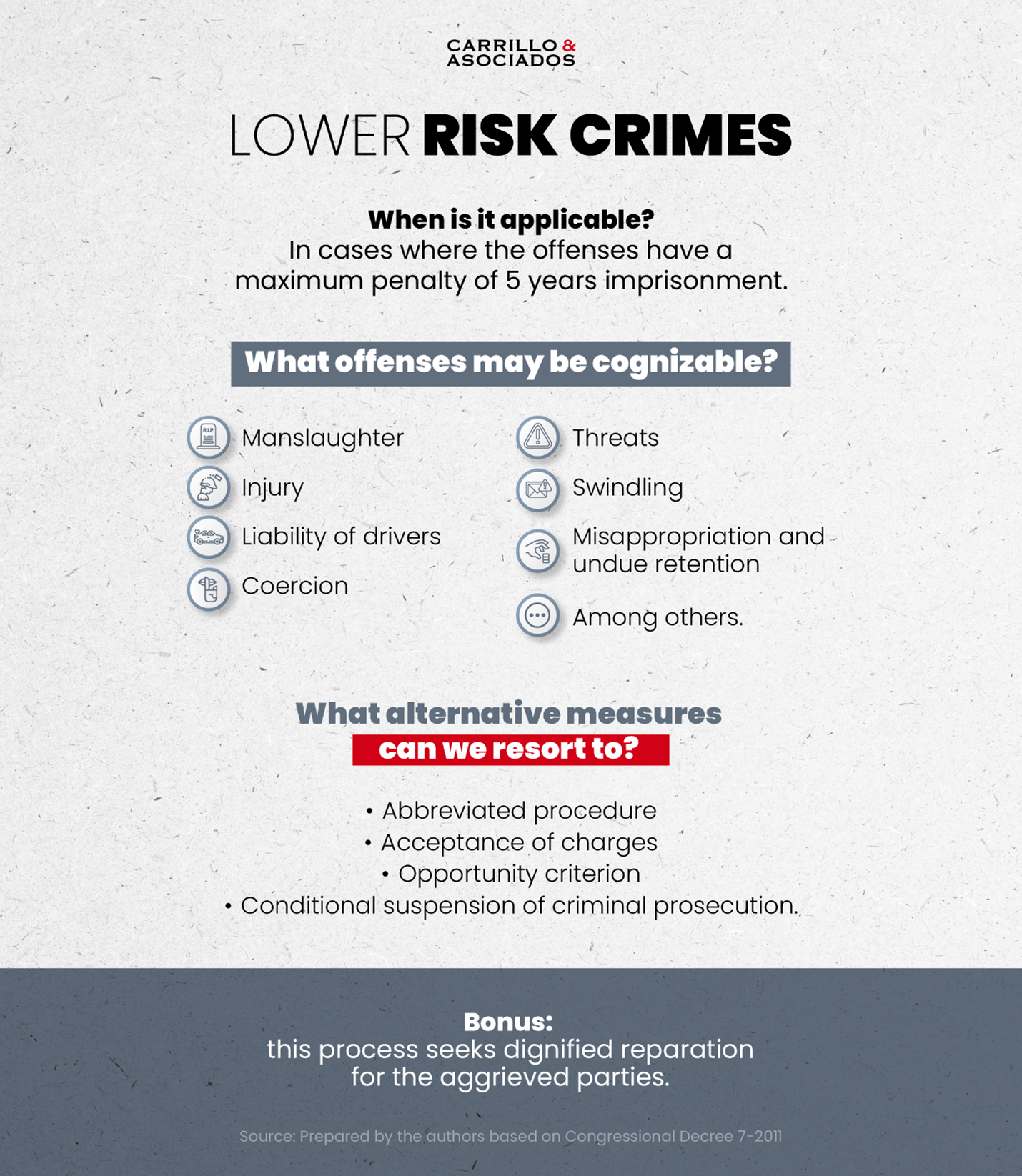
#FreshStartMonday
Welcome to #FreshStartMonday!
The judge must have the book of law in his hand and understanding in his heart.
-Sir Francis Bacon
In 2011, the Guatemalan Congress regulated the procedure for lower risk crimes[1]. These refernto crimes with a maximum penalty of five years of imprisonment.The procedure for these less serious crimes is special, although all the common regulations apply (such as the indictment, alternative measures, among others).
Currently, there are several crimes that can be processed in this way given the expected penalty. Among them we find:
- Manslaughter
- Injuries
- Liability of drivers
- Forced entry
- Coercion
- Threats
- Swindling
- Misappropriation and undue retention
- Among others.
This procedure is carried out through oral hearings, where a traditional trial can be carried out or other alternative procedures can apply, such as:
- Abbreviated procedure
- Acceptance of charges
- Opportunity criteria
- Conditional suspension of criminal prosecution
In addition, this procedure seeks a dignified reparation for the aggrieved parties. These may include measures such as: economic compensation to compensate for the damages caused by the crime; rehabilitation through medical and/or psychological support for the victims; and satisfaction, which means that the dignity of persons is recognized by the justice system.
Considering the versatility of the process and the criminal types that benefit from it, this is an important element that can be used by the parties to reach agreements. Therefore, through de-judicialization and alternative procedures, criminal conflicts can be resolvedin a practical manner, instead of resorting to the common procedure, which in Guatemala, could take years.


